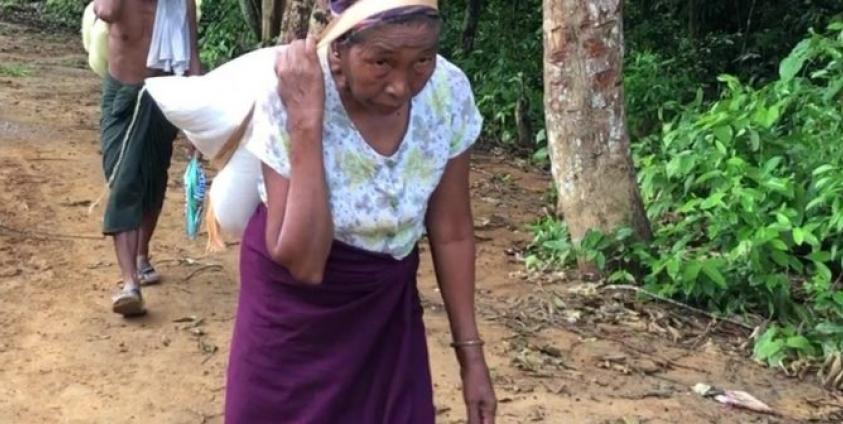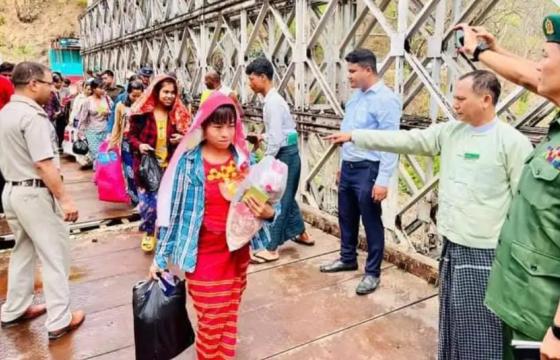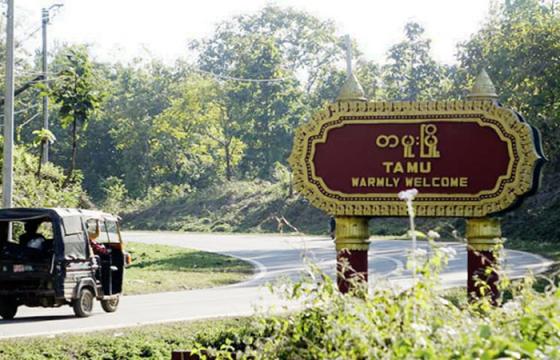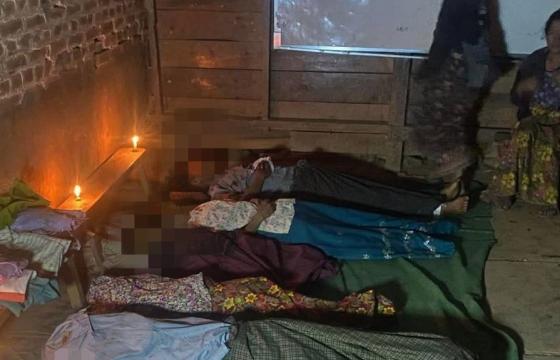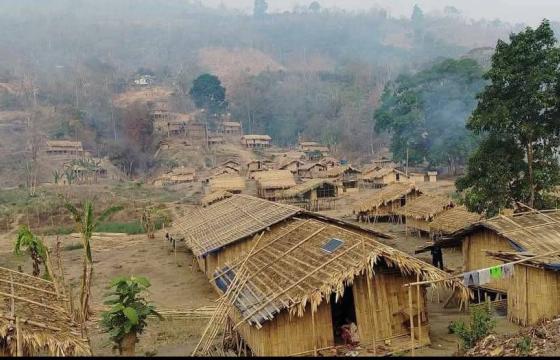Remote areas of southern Chin State’s Paletwa Township are struggling to meet the basic food needs of local people, including internally displaced persons (IDPs), due to Burma Army restrictions aimed at cutting off vital supplies to the Arakan Army (AA).
The restrictions, which have been in place since early May, allow each village-tract in the township to bring in just 50 bags of rice at a time from Kyauktaw, in neighboring Rakhine State. Permits issued by local authorities, including the General Administration Department (GAD) in Paletwa, are also required.
“The army only allows 50 bags of rice per village-tract. We have to submit a population list to the office of the township administration department before we can buy rice in Kyauktaw, and we also need permission to transport the rice. We can only buy rice in Kyauktaw after we get permission from the GAD office. Some village-tracts have hundreds of people, so 50 bags is not enough,” said a local man living in Meezar, a village that is host to more than 600 IDPs.
The army imposed the restrictions as part of its infamous “four cuts” strategy, which aims to deprive insurgent armies of supplies and support from the local population. However, the strategy also creates hardships for people who are not involves in the conflict.
“It takes at least a week to arrange a single shipment of rice from Kyauktaw, and with the 50-bag limit, this means we have to make many trips. This also makes the cost of shipping rice more expensive, which results in shortages,” the Meezar resident told Khonumthung News.
In many cases, this forces local people to buy rice from a Burma Army battalion based in Tharon Ai, a village near Meezar. However, at 50,000 kyat (US$33) a bag, this is much more than many can afford.
Khonumthung News contacted Koe Aung, a GAD officer in Paletwa Township, for his comment on this issue.
“Well, we don’t restrict rice imports, but the army does, for security reasons. But we distribute enough for each village. There is plenty of rice in [the town of]Paletwa. It’s up to the customers where they want to buy rice. If you have enough money, you can buy it anywhere,” he said.
The four-cuts strategy, which the Burma Army has used since the 1970s, aims to sever ethnic armies’ access to food, funds, information and recruits.
It has been deployed in Paletwa and in eight townships in Rakhine State in an effort to weaken the AA. In addition to restricting access to rice, the Burma Army has cut off access to the Internet in these areas since last month.
While the Internet blackout has raised fears of human rights abuses among international observers, local aid groups say that the rice restrictions are having the most serious impact on the lives of vulnerable people in the area, including IDPs.

